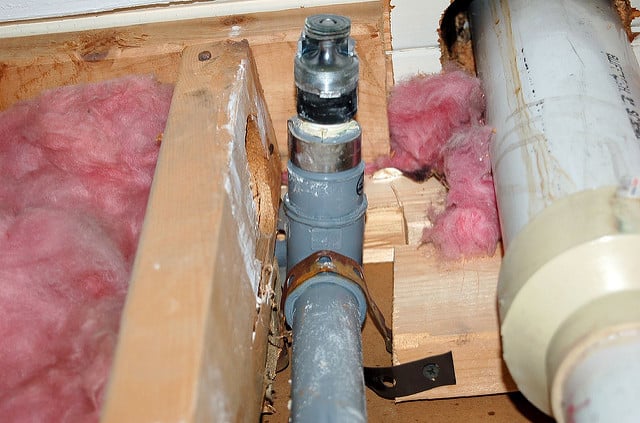Have you heard stories about the problems associated with leaks from your friends and neighbors who have grey or blue poly, are in an older home or have frequent leaks? Maybe you think it won’t happen to you. But problem piping can cause plumbing emergencies and a lot of stress. There are many reasons why you should consider replacing your piping.
Why you should replace your piping
Unreliable
You might think you can rely on your plumbing. You expect to go to the sink, turn it on and get running water. But if you have deteriorating or problem piping, it could be only a matter of time before your plumbing becomes unreliable and a water line bursts. Pre-1960s homes used galvanized steel that corrodes and clogs. Grey and blue polybutylene piping are also well known for their problems. These types of piping are unreliable. It’s no doubt that not having running water would be an inconvenience. And with these piping types, it seems to always happen at the worst possible time. We recommend you replace all galvanized and poly piping.
Frequent leaks
If you have already been dealing with sporadic leaks then you know the cost of repairs. Sporadic leaks lead to more frequent leaks throughout your system. And while replacing the entire system can be expensive, it can save you over the long term because those continuous repairs with the damage they cause add up. Although an old home has probably undergone extensive repairs with the plumbing, unless it has been completely replaced with newer piping, repairs have only been a temporary, partial measure. There is old or problem piping left in place that is prone to leaks. You don’t want to think of the future headaches so get peace of mind with a total replacement.
The age factor
It’s important to know what type of pipes you have in your home and the lifespan of those pipes. Knowing the condition of those pipes is also important. Well-maintained pipes may last longer than poorly maintained ones or those that are in hard water (high mineral content) areas. Knowing the age and condition of your pipes can help you take steps to prevent leaks, flooding and potential health hazards. Water lines installed with brass last about 40 to 70 years; water lines installed with galvanized steel about 20 to 50 years. Copper water lines last approximately 50 years. Concrete and cast iron drain lines last approximately 75 to 100 years. Polyvinyl chloride drain lines last indefinitely while cross-linked polyethylene (PEX) lasts only about 40 years. Polybutylene pipes (the grey and blue poly used from the 1970s through the 1990s) are extremely prone to breakage and should be replaced as soon as possible no matter what their age.
The growth factor
When considering replacing your pipes, don’t neglect the lines outside. If you have mature landscaping and trees around your home, you could have an all-too-common problem with tree roots wreaking havoc with your plumbing. You are responsible for your water and sewer on your property. Your water line responsibility starts from the meter at the street and runs through your house. Your sewer line responsibility runs through your house to the street meter. The older the lines, the more likely there are older trees with roots located near them that can cause damage.
If you suspect you have deteriorating or problem piping that needs to be replaced, contact High Priority Plumbing at 770.860.8110 in Atlanta. We can inspect your plumbing system and replace all types of water and sewer lines.
